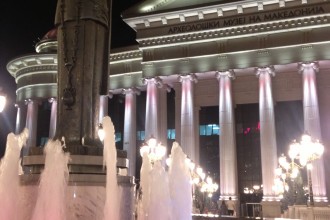Censorship of literature is an age-old issue. Its most ludicrous example — book burnings that wiped out any writing deemed inappropriate or objectionable to the authorities. Various casuistries of morality, religion and politics have been given by those who indulge in this practice, but the question remains: do we really want to be part of a society where readers cannot be trusted to think and reason for themselves?
In Pakistan, I think it is safe to say that most fiction published over the past few years has not faced much censorship in terms of content. And when we read these pieces, we see that the stories they tell are, what some might call, quite scandalous keeping the stereotypical image of a Pakistani society in mind. Leering dictators, homosexuals in the armed forces, translation of an Urdu story featuring a predatory lesbian detective and adulterous relationships carried out by Lahore’s elite: all depictions before which Ustaad Mangu touching his pregnant wife’s belly seems quite harmless. Which is why I was shocked when I read that Saadat Hasan Manto’s short story, “New Constitution†had been heavily censored by the authorities before it was included in school syllabuses. Perhaps it was because I’m a literature student and an aspiring writer myself, that I felt so indignant of being robbed of the complete story. And my annoyance only grew as I read which elements of the story had been removed on the pretext of morality and political correctness. It is embarrassing that in this day and age the school boards and higher authorities believe that a pregnant wife with a Hindu name and acknowledgements of Gandhi and Nehru as great leaders will derail readers from the path of virtue and wane their patriotism.
Technically, censorship works against itself in that it prevents people from exercising their own sense of discretion and discernment while reading a text. John F. Kennedy’s statement seems very apt in the case of Manto’s writing, “A nation that is afraid to let its people judge the truth and falsehood in an open market is a nation that is afraid of its peopleâ€. For Manto wrote on controversial topics like sex, incest and prostitution. This is probably the reason why the literary genius much ahead of his time, was charged numerous times on charges of obscenity and profanity and was not given his due status as a master of his trade during his lifetime. In his own words, “If you find my stories dirty, the society you are living in is dirty. With my stories, I only expose the truth.” My personal favorite Oscar Wilde said something similar when he stated that “the books the world calls immoral are the books that show the world its own shameâ€.
As we enter an age of enlightenment and progress, choosing to accept shame as our own and not pretending it doesn’t exist is not the answer, because ultimately, words can be erased, but reality cannot.




